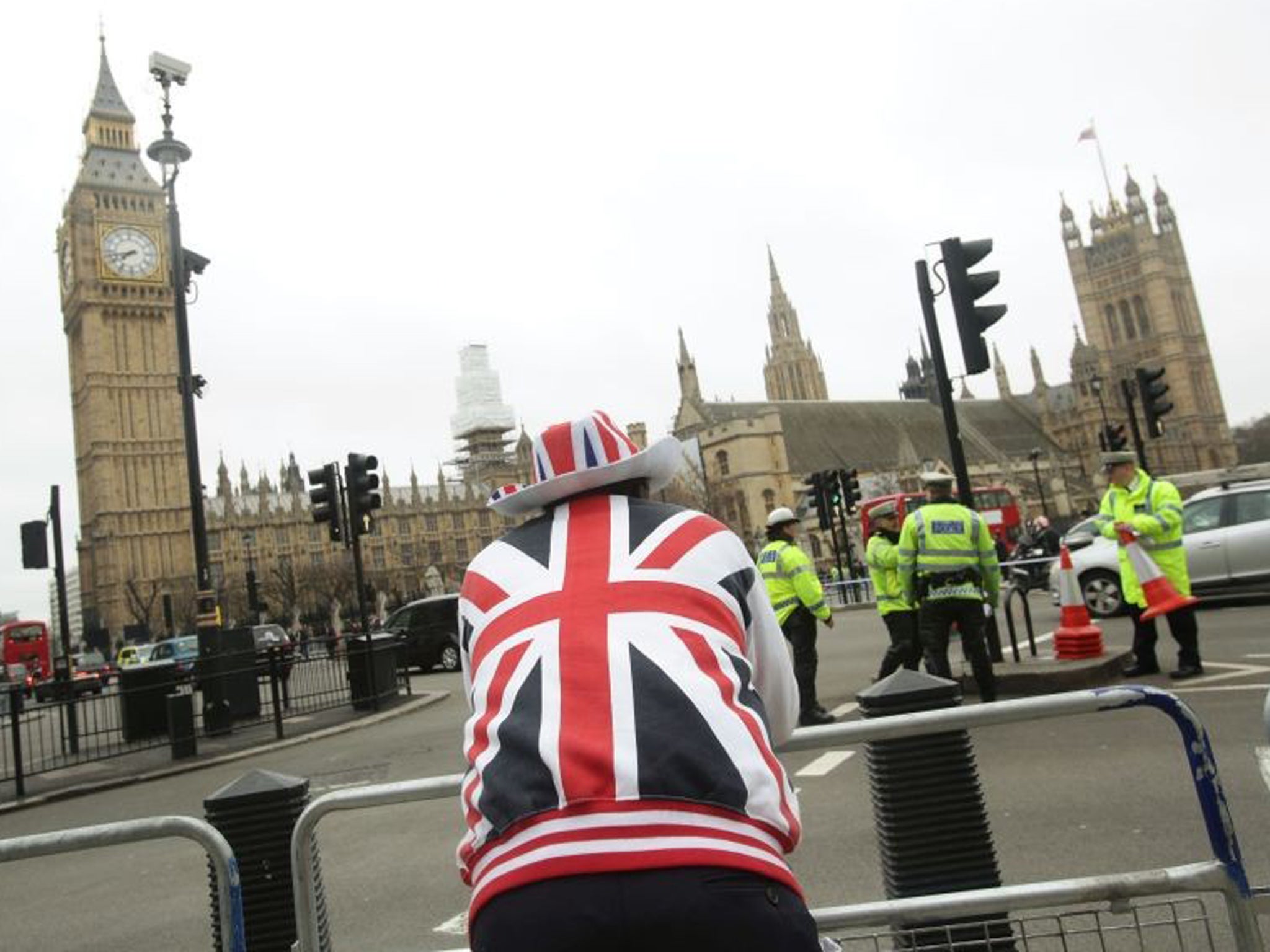Margaret Thatcher funeral: At Parliament Square, so often a scene of protest, the only sound to be heard is clicking cameras

Your support helps us to tell the story
From reproductive rights to climate change to Big Tech, The Independent is on the ground when the story is developing. Whether it's investigating the financials of Elon Musk's pro-Trump PAC or producing our latest documentary, 'The A Word', which shines a light on the American women fighting for reproductive rights, we know how important it is to parse out the facts from the messaging.
At such a critical moment in US history, we need reporters on the ground. Your donation allows us to keep sending journalists to speak to both sides of the story.
The Independent is trusted by Americans across the entire political spectrum. And unlike many other quality news outlets, we choose not to lock Americans out of our reporting and analysis with paywalls. We believe quality journalism should be available to everyone, paid for by those who can afford it.
Your support makes all the difference.The bells of Westminster Abbey rang out as the black hearse carrying Thatcher's flag draped coffin pulled out of Parliament. A few in the crowd began to clap but most remained silent as it sped off down Whitehall towards St Paul's.
Parliament Square was open to the public this morning but by 9am only a few spectators had come down to the place where Baroness Thatcher would later start her journey towards St Paul's.
Earlier on the green opposite the Houses of Commons, so often a scene of noisy protest, the only sound that could be heard was the shutter of clicking press cameras and passing buses.
Among the handful of spectators who had turned up there were vastly contrasting views about Britain's longest serving twentieth century Prime Minister. Dressed in red courdory trousers and a tweed jacket, Michael Barton, 70, had walked to the square from his house in Pimlico. “Quite frankly I'm in awe of her,” he said. “Her greatest legacy is that she took this country, in the space of just over a decade, from the sick man of Europe - a joke among nations - and turned it into what I believe is still the world's fifth largest economy.”
A former member of 2 and 3 Para who left the military shortly before the Falklands and moved to the United States while her close friend Ronald Reagan was in power, he added: “The Americans lionised her and rightly so. She gave freedom to so many people. Not just to the Falkland Islanders, but also to the Argentinian people. Their defeat helped Argentina rid themselves of a nasty leader. And with Reagan she helped the world confront and defeat Communism.”
Further down the square, Fernanda Defelippo, a 40-year-old photographer, sported a khaki Castro cap with a red star. “I'm here because of what she represents,” she said. “When I learned about her death I saw a headline somewhere which said Mayfair cries, Brixton protests. That's her legacy and that is what should be on her gravestone.”
Born in Brazil, Miss DeFelippo moved to Britain when she was 19. “Even without the internet Maggie was a mythical figure in Latin America,” she said. Asked what would go through her mind when she saw the coffin pass by she said: “I'll be thinking about how right now she is probaly sipping a glass of wine with her good friend [Chilean dictator] Augusto Pinochet”.
Subscribe to Independent Premium to bookmark this article
Want to bookmark your favourite articles and stories to read or reference later? Start your Independent Premium subscription today.
Join our commenting forum
Join thought-provoking conversations, follow other Independent readers and see their replies
Comments